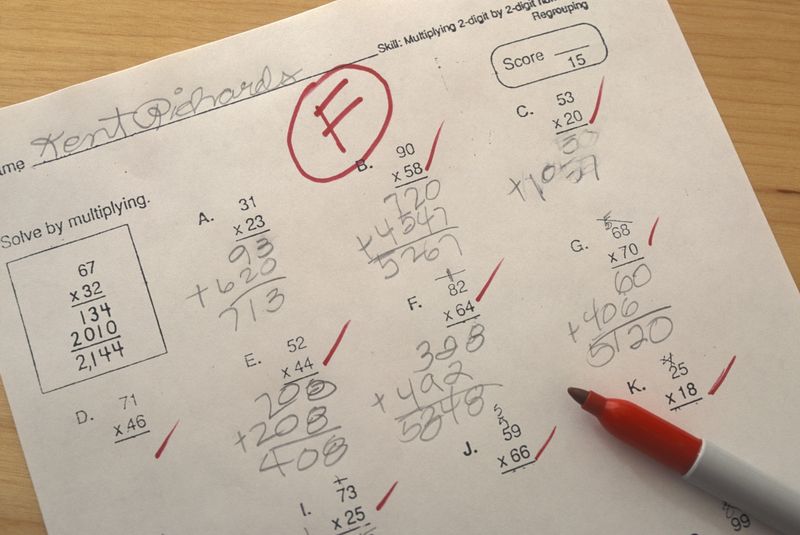Parenting is a journey filled with advice, some of which stands the test of time, while others become relics of the past. As society evolves, so do the expectations and norms around raising children. Today, what was once deemed sound advice might be perceived as inappropriate or even harmful.
In this blog post, we explore seven outdated parenting tips that are no longer acceptable in today’s world. These antiquated practices not only reflect past societal norms but also remind us of the importance of adapting our parenting approaches to suit modern values and understanding of child development.
1. Spanking as Discipline

Once considered a staple in parenting, spanking is now widely criticized. Many experts argue it can lead to increased aggression in children. Alternative discipline methods, like time-outs, are recommended. Spanking can harm the parent-child relationship. Studies suggest it teaches children that violence is an acceptable response to frustration. In today’s world, fostering open communication and understanding is key. Parents are encouraged to set clear boundaries with consistent consequences. The focus has shifted to teaching empathy and self-regulation. This change reflects a broader understanding of child psychology and emotional wellbeing that was overlooked in the past.
2. Gender-Specific Toys

In the past, toys were strictly gendered, limiting children’s interests. Boys had trucks and girls had dolls. This outdated notion restricted creativity and reinforced stereotypes. Today, experts advocate for toys that encourage diverse interests. Gender-neutral toys support cognitive and emotional development. Parents are urged to allow children to explore all types of play. This fosters a sense of equality and inclusivity. Breaking away from gender norms can lead to more well-rounded individuals. It’s essential to nurture all aspects of a child’s personality. Encouraging varied play helps develop a broad range of skills and interests.
3. Strict Bedtimes for All Ages

Rigid bedtime schedules were once non-negotiable. This approach often disregarded individual needs. Teenagers, for instance, have different sleep patterns. Modern parenting embraces flexibility. Tailoring bedtimes to suit a child’s age and requirements is crucial. Studies show that adequate sleep enhances academic performance and emotional resilience. Parents are encouraged to communicate with their children about their needs. Developing a collaborative approach ensures everyone gets enough rest. This shift highlights the importance of understanding developmental stages. It recognizes that each child is unique, promoting a healthier family dynamic.
4. “Children Should Be Seen and Not Heard”

Silencing children was a common practice. It stifled creativity and self-expression. Today, parents are encouraged to listen to their children. Allowing them to express thoughts fosters confidence. Engaging children in conversations aids language development. It’s crucial for building a trusting relationship. This outdated tip ignored the importance of communication. Modern parenting values open dialogue. Children who feel heard are more likely to develop healthy self-esteem. Encouraging children to share their opinions contributes to their growth. This approach nurtures critical thinking and emotional intelligence. It’s essential for preparing children for the complexities of the world.
5. Punishing Bad Grades

Academic performance was once met with punishment. This approach often led to anxiety and fear. Modern parenting focuses on support. Encouraging effort over perfection is vital. Parents are advised to understand the reasons behind poor performance. Providing help and resources can lead to improvement. This shift promotes a love for learning rather than dread. Celebrating small achievements boosts confidence. It fosters a growth mindset, essential in today’s world. Punishment can hinder a child’s motivation. A supportive environment encourages perseverance and curiosity. Building resilience in children prepares them for future challenges.
6. No Privacy for Children

Respecting privacy was often overlooked. Children had little control over personal spaces. Today, privacy is recognized as crucial for development. It fosters independence and trust. Parents are encouraged to communicate boundaries. Respecting a child’s space teaches responsibility. It promotes a sense of security and autonomy. This shift highlights the importance of trust in relationships. Privacy supports emotional development. Parents should balance oversight with respect. Encouraging open communication is key. This approach prepares children for independent living. It acknowledges their growing need for personal space. Respecting privacy promotes healthy family dynamics.
7. Feeding “Clean Plate Club”

Forcing children to finish their meals was once common. It often ignored natural hunger cues. Today, this practice is discouraged. It can lead to unhealthy eating habits. Parents are advised to respect a child’s appetite. Offering balanced meals encourages mindful eating. It’s important to create a positive mealtime experience. Pressuring children can lead to food aversions. Encouraging them to try new foods without force is key. Modern parenting values a healthy relationship with food. It’s essential for long-term wellbeing. Teaching children to listen to their bodies promotes autonomy. It helps prevent eating disorders in the future.

Well, hello there!
My name is Jennifer. Besides being an orthodontist, I am a mother to 3 playful boys. In this motherhood journey, I can say I will never know everything. That’s why I always strive to read a lot, and that’s why I started writing about all the smithereens I came across so that you can have everything in one place! Enjoy and stay positive; you’ve got this!

